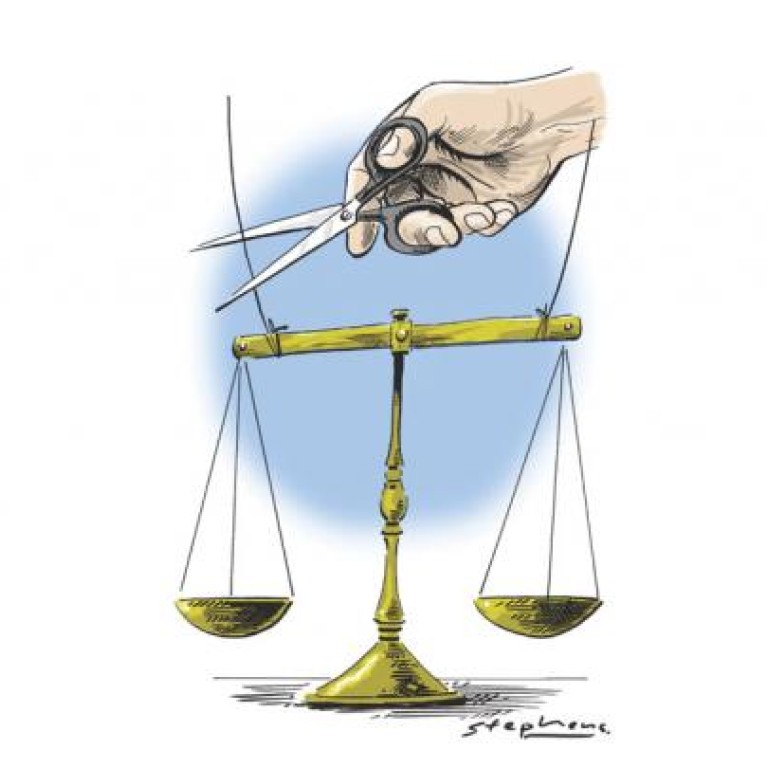
Independence day
Grenville Cross says a public prosecution system free from political interference is as vital for Hong Kong's future as an independent judiciary, and it's time the justice department showed some enlightened thinking
"The independence of prosecutorial decision making," said Nicholas Cowdery QC, past president of the International Association of Prosecutors, "is the rock on which we stand." When deciding on cases, prosecutors must act independently. Moreover, like judges, they must also be seen to be acting impartially. If the public are to have faith in prosecutorial decisions, the system should be transparent and manifestly free of political influence. This, as common law jurisdictions now recognise, requires that the control of public prosecutions be vested not in a politically appointed minister, but in an independent director of public prosecutions (DPP). After all, in a just society, prosecutorial freedom is no less important than judicial independence.
Last year, when calls were made for an independent DPP - operating within the Department of Justice but free of the control of the secretary for justice, a political appointee - these were rebuffed by then secretary Wong Yan-lung, who claimed that having an independent DPP was incompatible with the Basic Law. The attorney general of England and Wales had transferred the bulk of prosecutorial powers to their DPP in 2009, but Wong refused to adopt this model. His objection, however, was scotched once the Basic Law Institute advised that not only was having an independent DPP consistent with the Basic Law, but also that for the secretary to be involved in prosecutorial decisions was, itself, contrary to the Basic Law, which requires the department to control prosecutions "free from any interference".
The department has since shifted its ground somewhat, presumably in light of the institute's advice. The objection to change is now seemingly based not so much on the Basic Law, but on what is said to be the satisfactory nature of the status quo. Indeed, a spokesman for the Prosecutions Division even went so far as to claim that "the system is working well as it currently exists", which, in light of recent cases, was extraordinary, and showed that basic lessons had not been learned.
Last year, for example, at least five ministers were found to have allegedly illegal structures on their properties, an offence punishable with imprisonment or fines. Although former chief executive Donald Tsang Yam-kuen told his ministers to remove any illegal structures, not all complied, and farce intruded once it was revealed that Tsang himself had an allegedly illegal structure on his property in Macdonnell Road. Moreover, then education minister Michael Suen Yuen-ming was found not only to have had an unauthorised extension at his home in Happy Valley, but also to have ignored for five years a demolition notice issued by the department for which he himself was then responsible.
However, none of the ministers was ever prosecuted, and no explanation was given for this by Wong or anybody else. There could, of course, have been perfectly good reasons for not prosecuting them, but none was given, and this inevitably raised concerns of cronyism at the top of government. Secrecy in criminal cases involving public figures inevitably undermines public confidence, and it also feeds off itself. The real tragedy, however, in such situations is that the standing of the prosecution system itself is tarnished, not least because, like Caesar's wife, it must always be above suspicion.
When mystery surrounds the handling of criminal cases, it is bad not only for justice, but also for the appearance of justice. The case for reform is now overwhelming, and, when the Legislative Council's new legal services panel meets shortly to discuss prosecutorial independence, it is hoped that the Department of Justice will unveil some fresh thinking.
After all, Hong Kong now has a new secretary for justice, Rimsky Yuen Kwok-keung, and will soon have a new director of public prosecutions. Between them, they must have the courage to break with the past and to develop the prosecution system in an enlightened way that promotes prosecutorial independence. Reactionary attitudes have no role to play in a modern prosecuting authority, and our prosecution arrangements must now be aligned with international norms. Indeed, a job qualification for the incoming DPP should be a commitment to securing a prosecution system which is truly independent of government, and seen to be so.
The Basic Law, moreover, provides that the previous way of life will endure for 50 years after 1997, but what happens after that is anybody's guess. Former chief justice Andrew Li Kwok-nang has highlighted the need to sort out Hong Kong's future arrangements well before 2047, and this is particularly important as regards public prosecutions.
If a strong, transparent and independent prosecution system, ideally following the English paradigm, can be entrenched long before the 50 years are up, the chances of it emerging intact after 2047 will be greatly enhanced. The Department of Justice, which reportedly is now reviewing its stance, must, therefore, show itself to be willing to modernise and move with the times.
After all, UN guidelines on the role of prosecutors and the standards of professional responsibility of the International Association of Prosecutors each recognise the importance of the independent exercise of prosecutorial discretion, and anything that can now be done to promote the independence of the DPP and depoliticise the prosecution system will be good for Hong Kong, both before 2047 and after.

